Irrigation Design, Build, and Installation
You can trust us to provide a seamless irrigation system for your commercial or residential space.
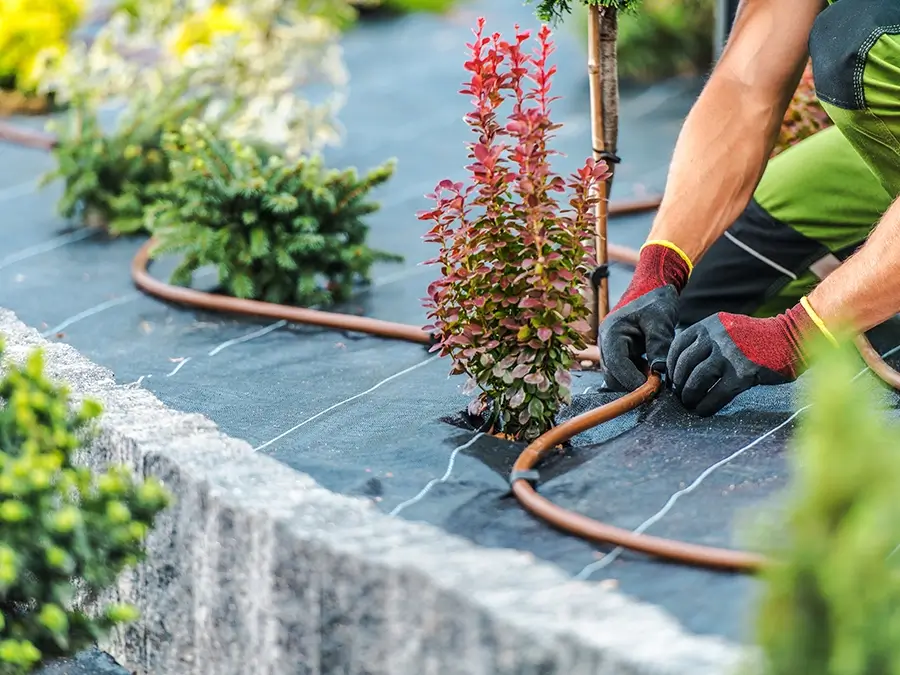
You can trust us to provide a seamless irrigation system for your commercial or residential space.
Irrigation design, build, and installation is a comprehensive process that ensures efficient water distribution for landscapes, farms, and gardens. It involves strategically planning and constructing irrigation systems to meet specific watering needs. Trusting this task to experienced professionals is crucial to guarantee optimal functionality, water conservation, and long-term reliability.
Grass Plus, Inc., a full-service landscaping company established in 1993, specializes in designing and constructing irrigation systems. Our experienced team utilizes top-grade equipment and streamlined techniques to ensure efficient water distribution for projects of all sizes, from simple gardens to expansive sports fields. Count on us for reliable irrigation solutions that enhance the beauty and health of your landscape.
How We Plan the Design, Construction, and Installation
Irrigation design and installation involve several key steps to ensure an effective and efficient system. Here’s how we do it:
1. Site Assessment
In this step, we thoroughly evaluate landscapes. Our experts consider factors like soil type, topography, plant types, and water sources. This assessment helps us determine the irrigation needs and challenges specific to every site.
2. Water Source Identification
We also assess the availability and quality of water sources to determine the best water supply for irrigation systems. This may include municipal water, wells, or rainwater harvesting.
3. System Design
We’ll then create a comprehensive plan. It includes determining the placement and types of sprinklers, drip emitters, valves, pipes, and controllers. We consider factors like water pressure, coverage, and plant water requirements to ensure optimal efficiency.
4. Water Conservation Measures
The design incorporates water-saving techniques such as zoning, which divides the landscape into different areas with similar water needs. Additionally, we include features like rain sensors and smart controllers to prevent overwatering.
5. Equipment Selection
Our team carefully selects high-quality irrigation equipment, such as sprinklers, drip irrigation components, valves, and controllers. Using top-grade equipment ensures quality services and efficient water distribution.
6. Installation
7. System Testing
After installation, we will then test the system to ensure proper functionality and coverage. This includes checking for leaks, adjusting sprinkler heads, and verifying that the system operates according to the design specifications.
8. System Calibration
Our experts will fine-tune the system to meet the specific watering needs of every landscape. We adjust water flow rates, run times, and the scheduling to ensure efficient water usage while promoting healthy plant growth.
9. Client Education
To wrap everything up, we will explain the irrigation system’s operation and maintenance to you. We’ll provide instructions on how to use the controllers, adjust settings, and perform routine maintenance tasks to maximize the system’s lifespan.
Other Landscape &
Irrigation Services
Get In Touch
- Email Us
- (801) 394-2244
-
554 E. 2200 N. Eden,
UT 84310 -
Monday to Friday,
9 AM to 5 PM
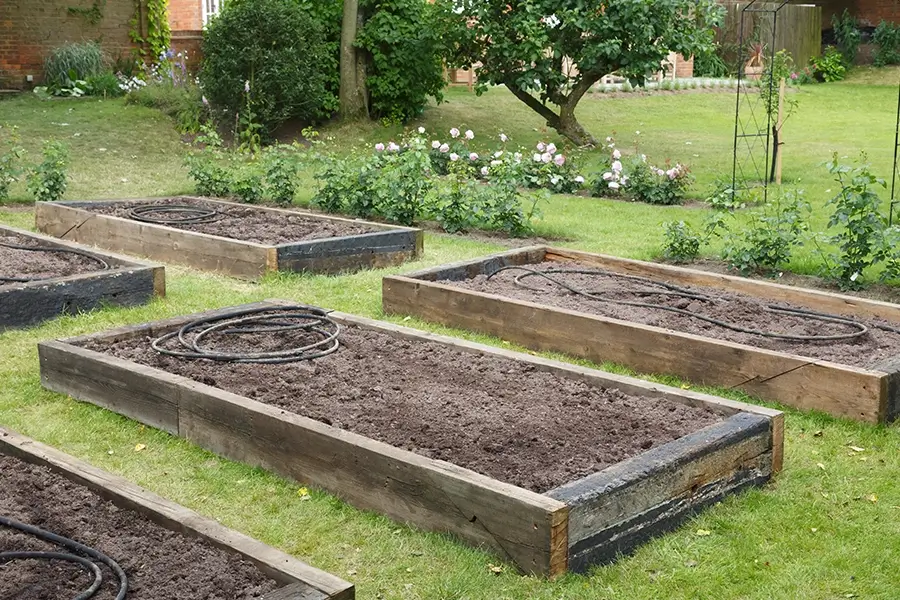
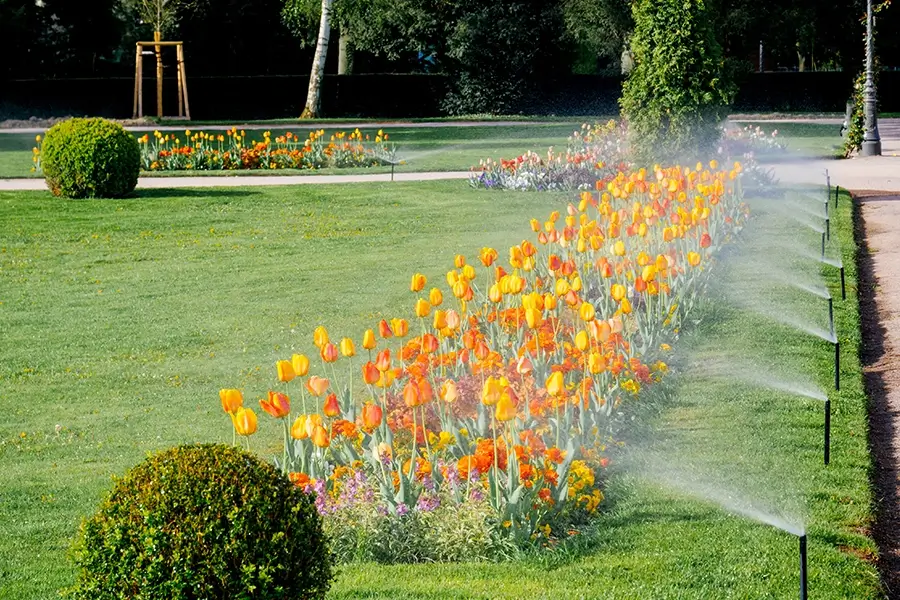
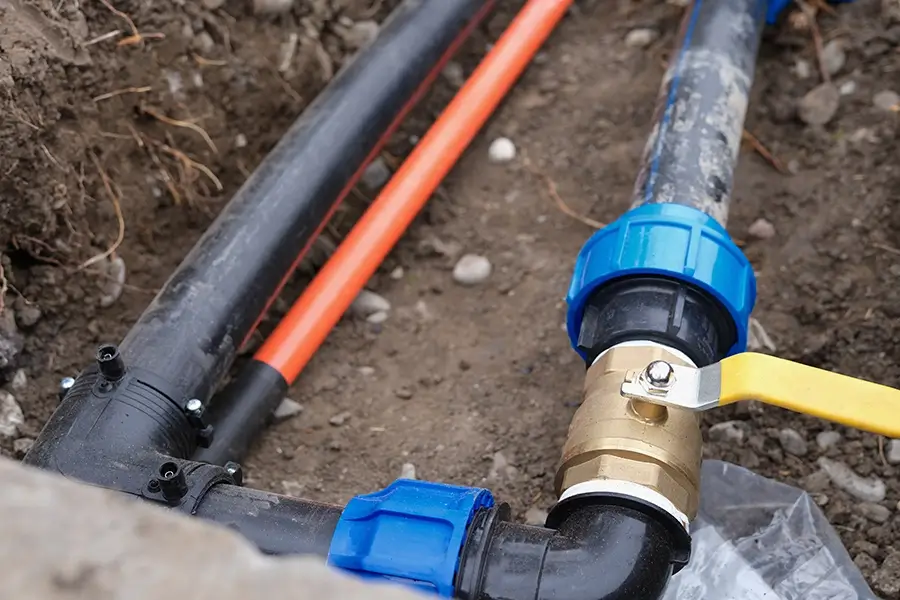
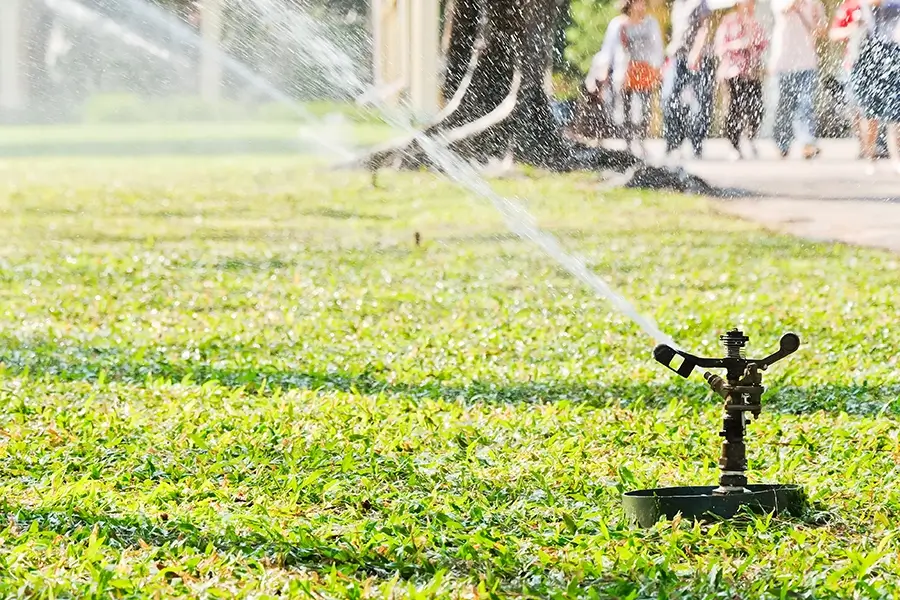
Creating Beautiful Utah Landscapes Since 1993
Benefits of a Streamlined Irrigation System
A reliable irrigation system offers numerous benefits for both residential and commercial landscapes. Here are some:
1. Efficient Water Distribution
A well-designed and properly installed irrigation system ensures efficient water distribution to plants. Compared to manual watering methods, it delivers water directly to the root zone and reduces evaporation and runoff.
2. Time and Labor Savings
An automated irrigation system eliminates the need for manual watering, saving valuable time and reducing labor efforts. It allows for scheduled watering, even when you’re away, and ensures plants receive adequate moisture consistently.
3. Environmental Sustainability
A streamlined irrigation system contributes to environmental sustainability by conserving water and reducing water runoff. It helps protect local water resources, minimizes the impact on ecosystems, and supports responsible water management.
4. Cost Savings
Although installation requires an initial investment, a well-functioning irrigation system leads to long-term savings. By using water efficiently, it reduces water bills, plant replacement costs, and the need for additional maintenance.
FAQs
Here are some of the most asked questions regarding irrigation design, build, and installation:
1. Why is irrigation important for landscaping and agriculture?
Irrigation is important as it provides a steady water supply to plants, ensuring they receive adequate moisture for healthy growth, especially during dry periods or in areas with limited rainfall.
2. What are the different types of irrigation systems?
There are several types of irrigation systems available, including sprinkler systems, drip irrigation systems, micro-irrigation systems, and center pivot systems. Each type has its own advantages and is suitable for different applications and landscapes.
3. How do I determine the irrigation requirements for my landscape or crops?
Determining irrigation requirements involves considering soil type, plant water needs, climate conditions, and evapotranspiration rates. Consulting with irrigation professionals or using specialized tools can help accurately assess water requirements for efficient irrigation design.
4. Can I design and install an irrigation system myself, or should I hire professionals?
While simple irrigation systems can be designed and installed by homeowners or DIY enthusiasts, it is best to consult with irrigation professionals for more complex or large-scale projects. Professionals have the expertise to create efficient systems, ensure proper installation, and provide ongoing maintenance and support.
5. What are the main components of an irrigation system?
The main components of an irrigation system include pipes, valves, emitters (such as sprinkler heads or drip emitters), filters, controllers, sensors, and backflow prevention devices. These components work together to distribute water efficiently to the intended areas.
6. Are there any regulations I need to follow or permits I need for irrigation system installation?
Regulations and permit requirements for irrigation system installation may vary depending on your location and project scope. It is advisable to check with local authorities or irrigation professionals to determine any necessary permits or compliance requirements.
7. How do I determine the water pressure requirements for my irrigation system?
Determining the requirements involves factors such as the type of irrigation system, elevation changes, pipe sizes, and the desired flow rate. It is crucial to ensure there is consistent water pressure to deliver water efficiently to all parts of the irrigation system.
8. Can I automate my irrigation system?
Yes. Irrigation systems can be automated using controllers and timers. Automated systems allow you to set specific schedules and durations for watering. This, in turn, ensures consistent and efficient irrigation without manual intervention.
9. Are there eco-friendly irrigation options?
Yes. These include drip irrigation or micro-irrigation systems that deliver water directly to the root zone, reducing water loss through evaporation. Additionally, integrating water-saving technologies and practices can help minimize water waste.
10. How do I prevent overwatering or underwatering with my irrigation system?
Preventing overwatering or underwatering involves understanding the water needs of your plants or crops and adjusting irrigation schedules accordingly. Installing soil moisture sensors or using weather-based controllers can help optimize watering and prevent unnecessary water use.
11. Can I integrate my irrigation system with smart home technology?
Yes. It is possible. You can connect smart irrigation controllers to Wi-Fi networks and controlled remotely using smartphone apps or voice assistants, providing convenience and allowing for real-time adjustments based on weather conditions.
12. Can I use rainwater or recycled water for my irrigation system?
Using rainwater or recycled water for irrigation can be an eco-friendly practice. Rainwater harvesting or greywater recycling systems can be integrated into your irrigation setup, reducing reliance on potable water sources.
Why Choose Us
Among other companies that offer irrigation design and installation services, Grass Plus, Inc. is the excellent choice. Here’s what makes us stand out:
- Providing Professional and Quality Services Since 1993
- Specializing in a Diverse Range of Projects in Utah, Wyoming, Colorado, and Idaho
- Restoring and Stabilizing Your Land With Your Vision in Mind
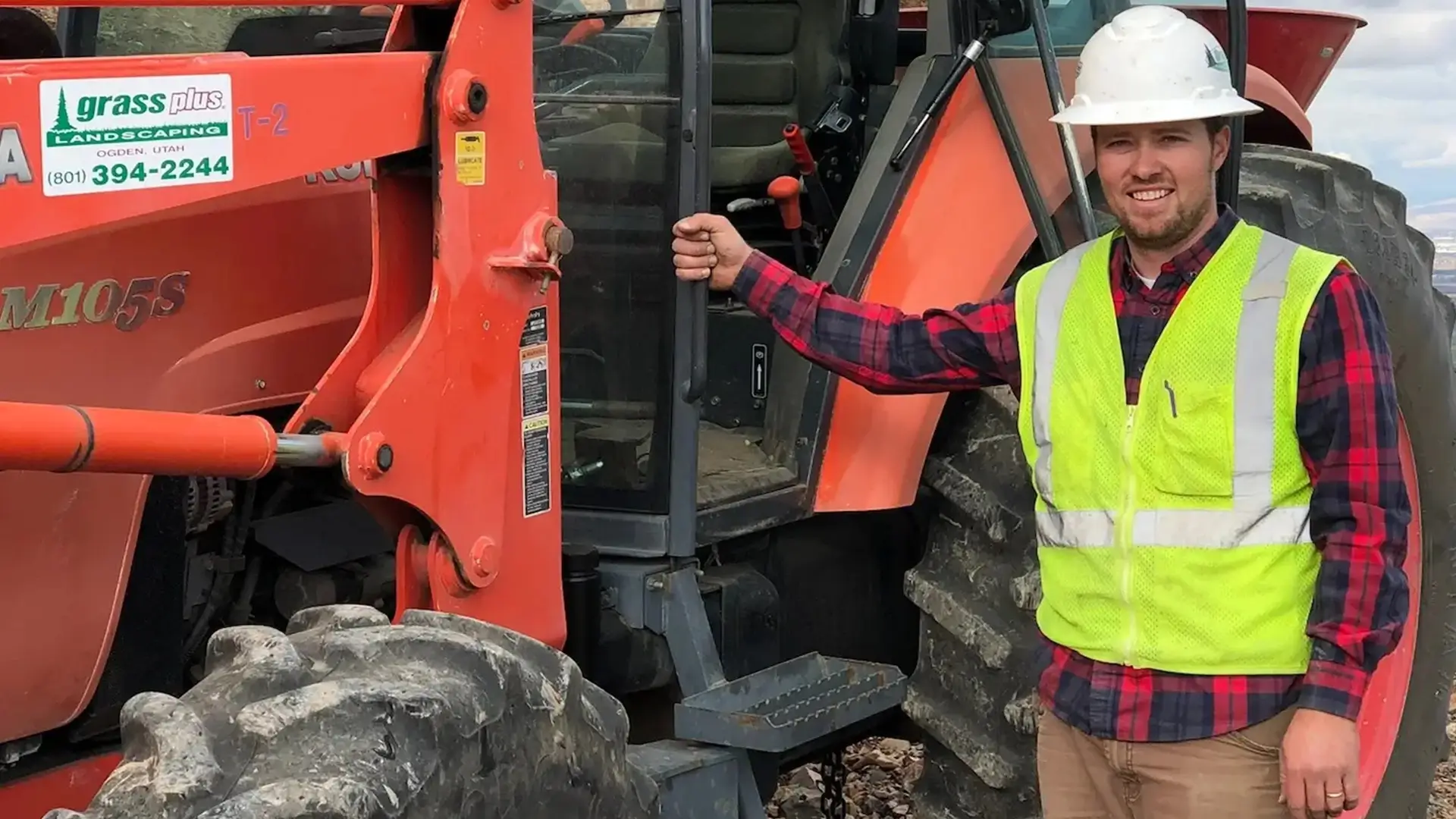
Get In Touch
- Email Us
- (801) 394-2244
-
554 E. 2200 N. Eden,
UT 84310 -
Monday to Friday,
9 AM to 5 PM
Contact Grass Plus, Inc. Today
Ensure your outdoor landscape is efficiently irrigated by calling Grass Plus, Inc. today! For inquiries, please don’t hesitate to reach out to us during our operating hours. We’ll be more than happy to help.


